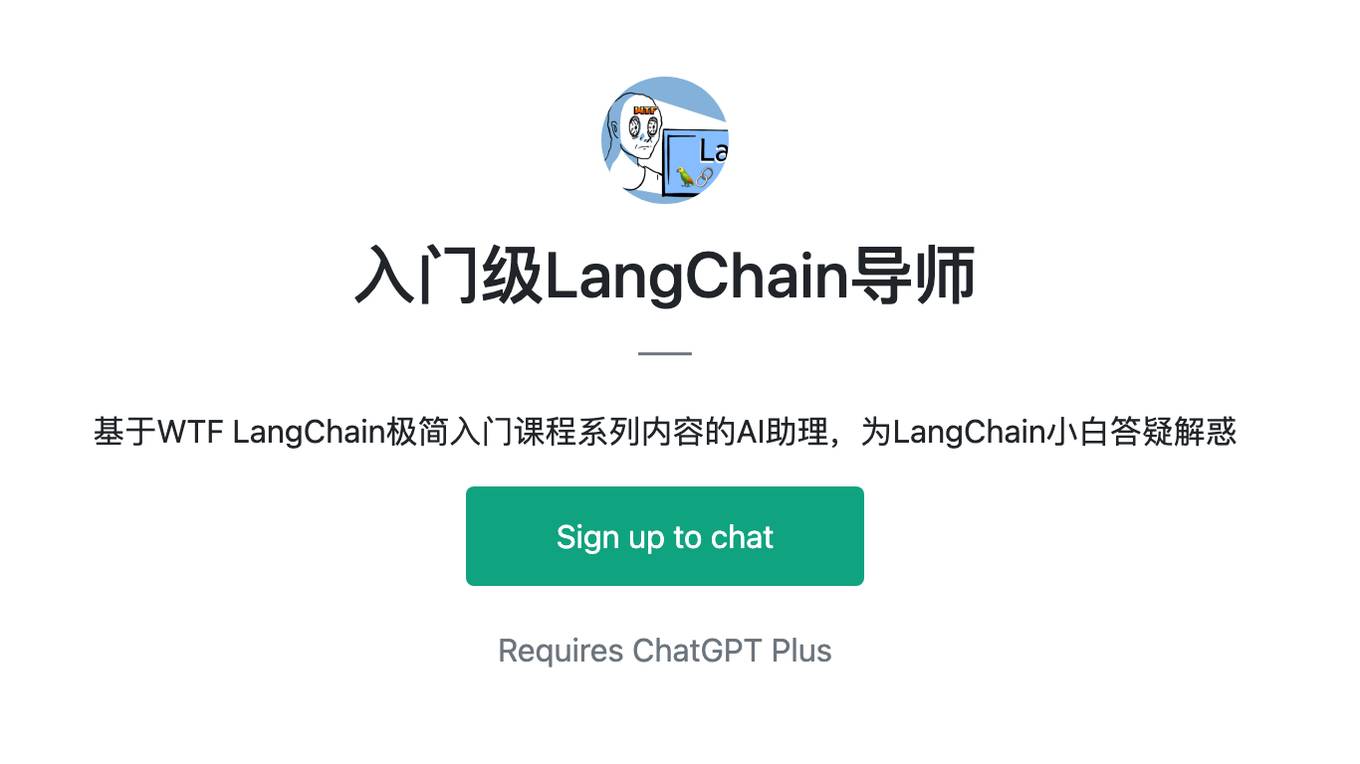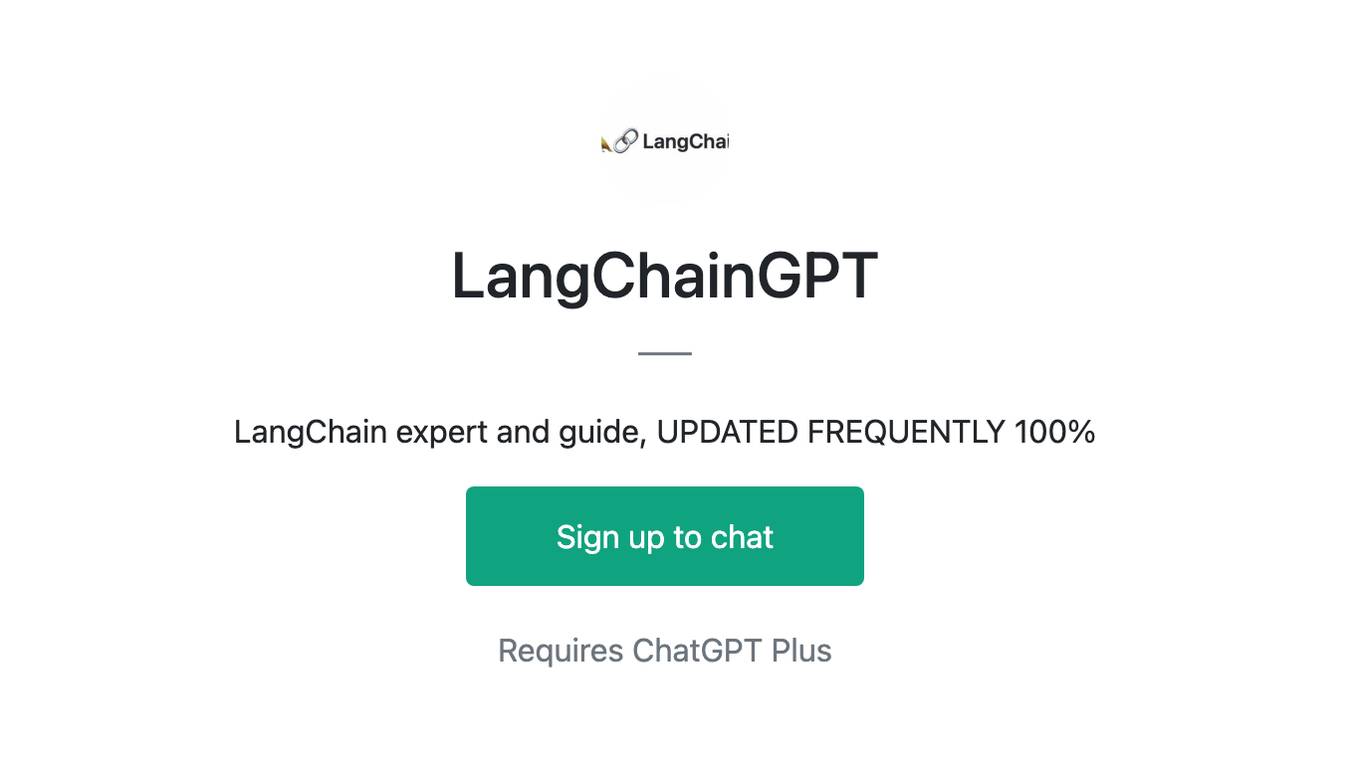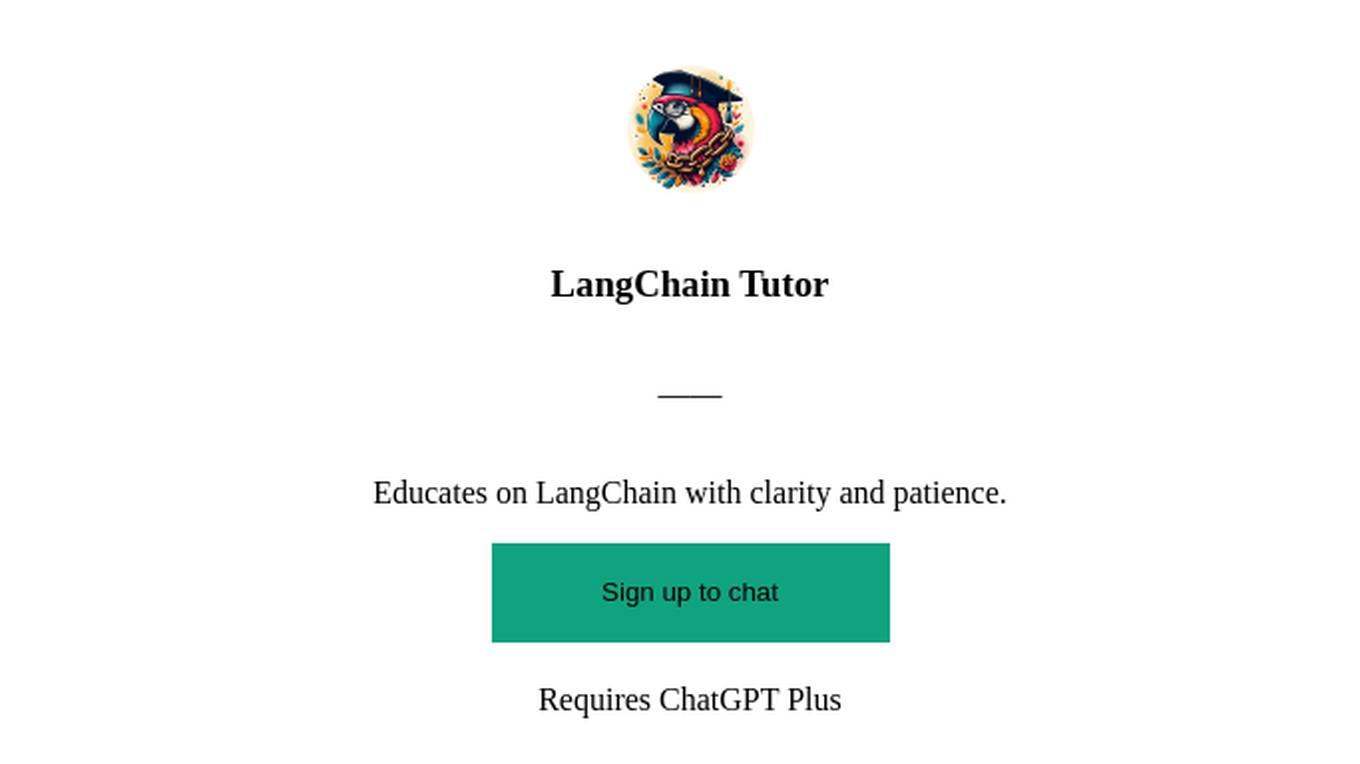Best AI tools for< Langchain Developer >
Infographic
17 - AI tool Sites
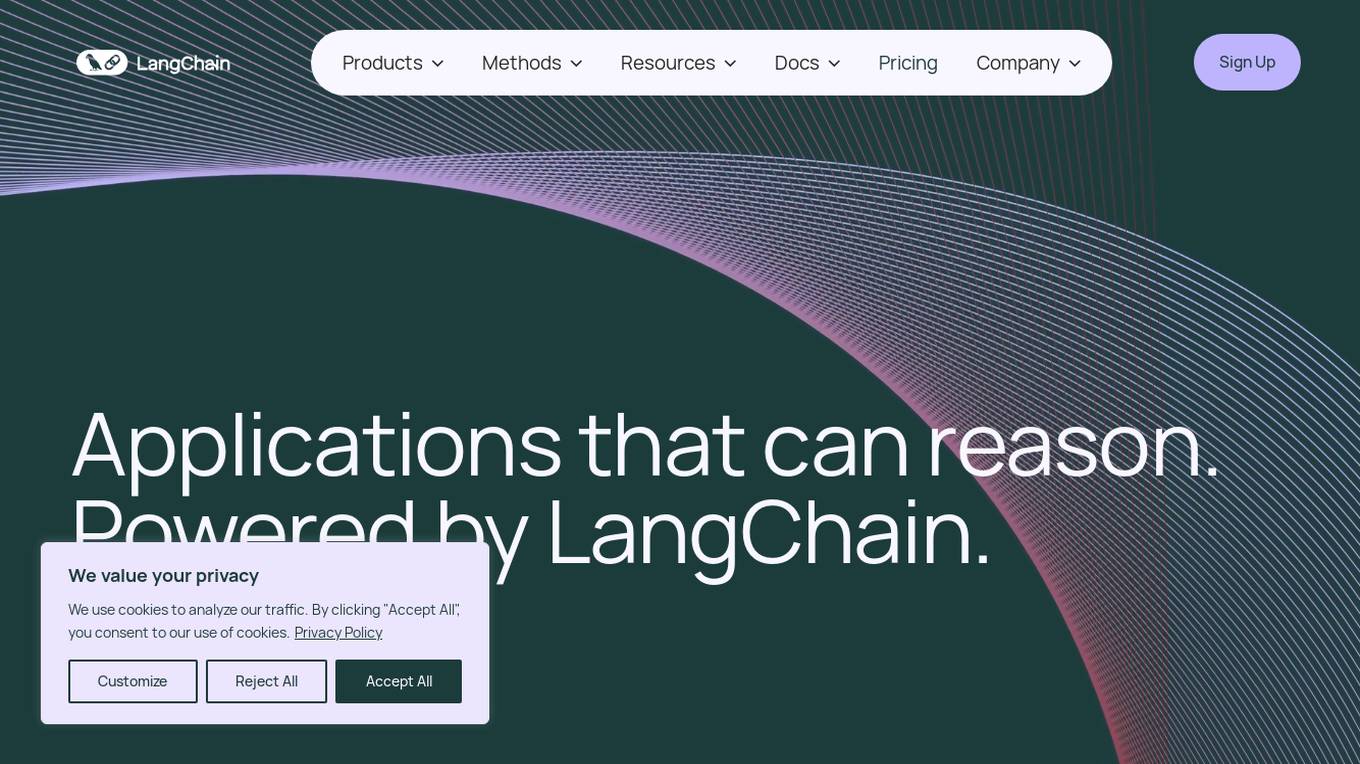
LangChain
LangChain is an AI tool that offers a suite of products supporting developers in the LLM application lifecycle. It provides a framework to construct LLM-powered apps easily, visibility into app performance, and a turnkey solution for serving APIs. LangChain enables developers to build context-aware, reasoning applications and future-proof their applications by incorporating vendor optionality. LangSmith, a part of LangChain, helps teams improve accuracy and performance, iterate faster, and ship new AI features efficiently. The tool is designed to drive operational efficiency, increase discovery & personalization, and deliver premium products that generate revenue.
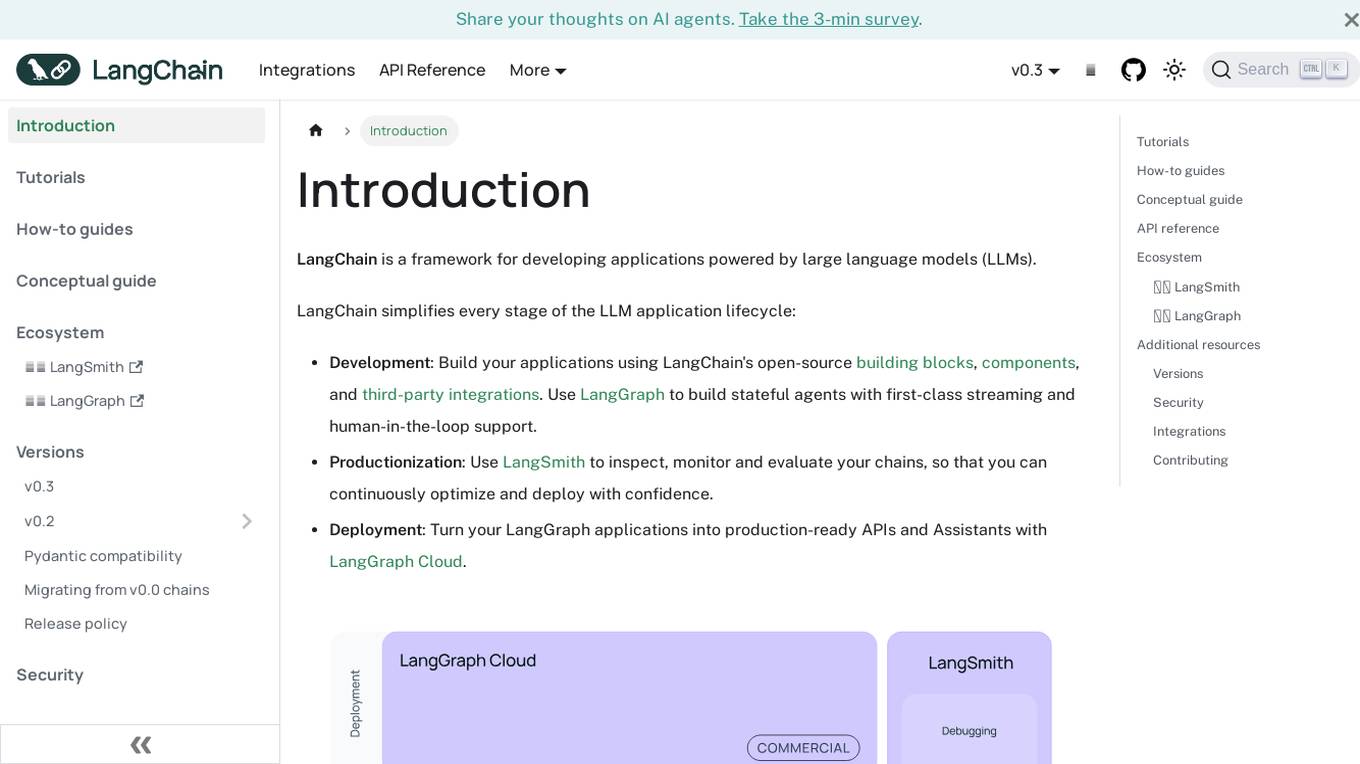
LangChain
LangChain is a framework for developing applications powered by large language models (LLMs). It simplifies every stage of the LLM application lifecycle, including development, productionization, and deployment. LangChain consists of open-source libraries such as langchain-core, langchain-community, and partner packages. It also includes LangGraph for building stateful agents and LangSmith for debugging and monitoring LLM applications.
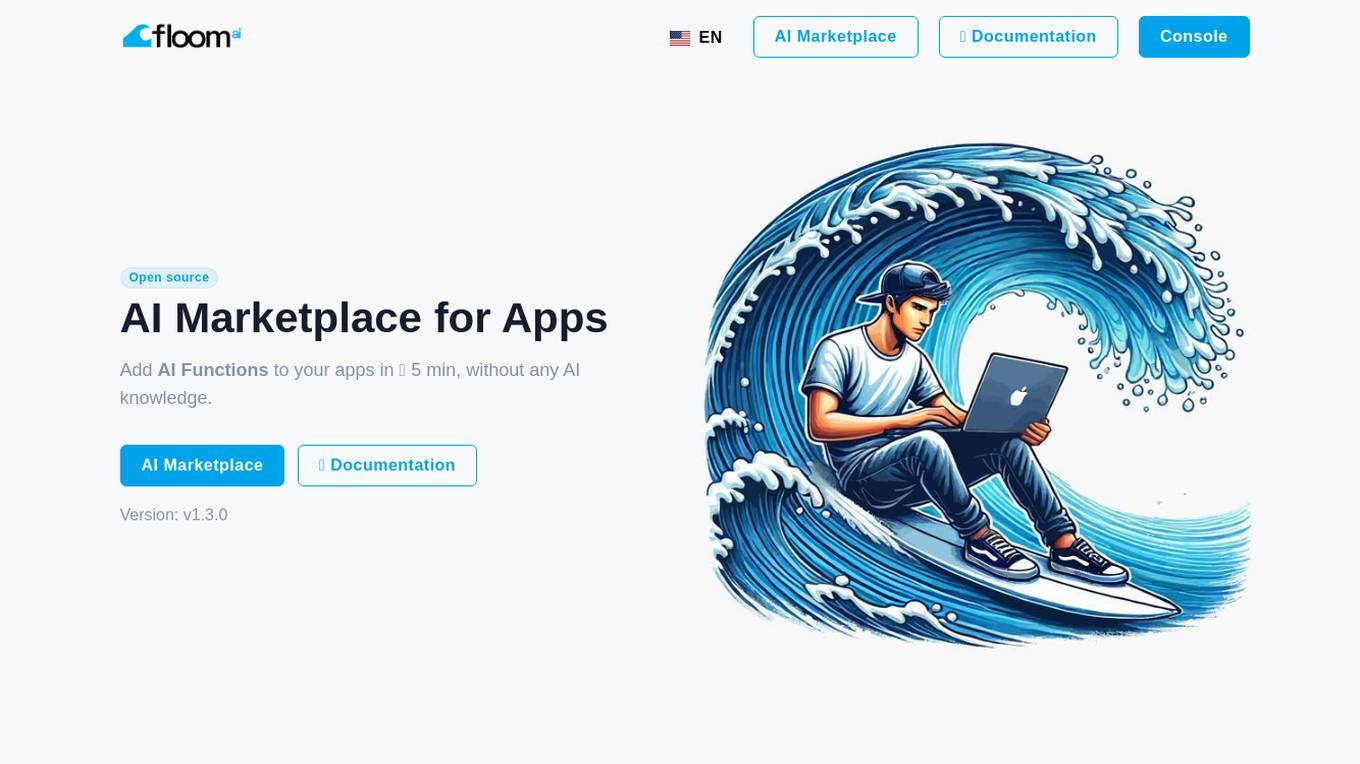
Floom.ai
Floom.ai is an AI Marketplace for apps that allows users to easily add AI functions to their applications in just 5 minutes, without requiring any prior AI knowledge. The platform offers a variety of AI functions developed by the community, such as text translation, classification, summarization, keyword extraction, social media post generation, code explanation, code conversion, code improvement, physical address extraction, and SQL query generation. Floom.ai aims to empower developers and businesses to enhance their applications with AI capabilities through a user-friendly and efficient marketplace.

Firecrawl
Firecrawl is an advanced web crawling and data conversion tool designed to transform any website into clean, LLM-ready markdown. It automates the collection, cleaning, and formatting of web data, streamlining the preparation process for Large Language Model (LLM) applications. Firecrawl is best suited for business websites, documentation, and help centers, offering features like crawling all accessible subpages, handling dynamic content, converting data into well-formatted markdown, and more. It is built by LLM engineers for LLM engineers, providing clean data the way users want it.
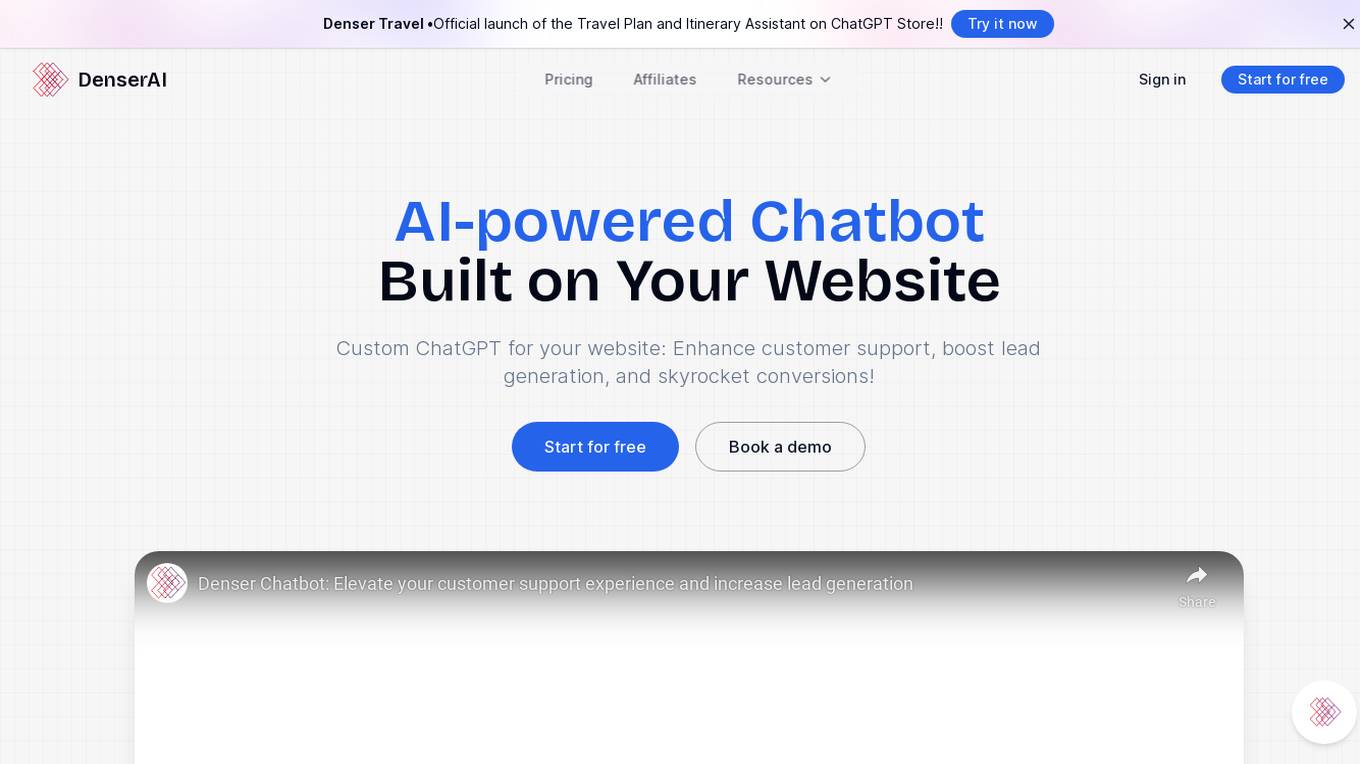
DenserAI
DenserAI is an AI-powered chatbot application designed to be integrated into websites to enhance customer support, lead generation, and conversions. It offers powerful AI features such as intelligent search and chat systems, precise answers with source citations, advanced search functionality, and seamless integration with various platforms. DenserAI aims to provide efficient and scalable solutions for businesses to improve customer satisfaction, save operational costs, generate leads, and boost sales.
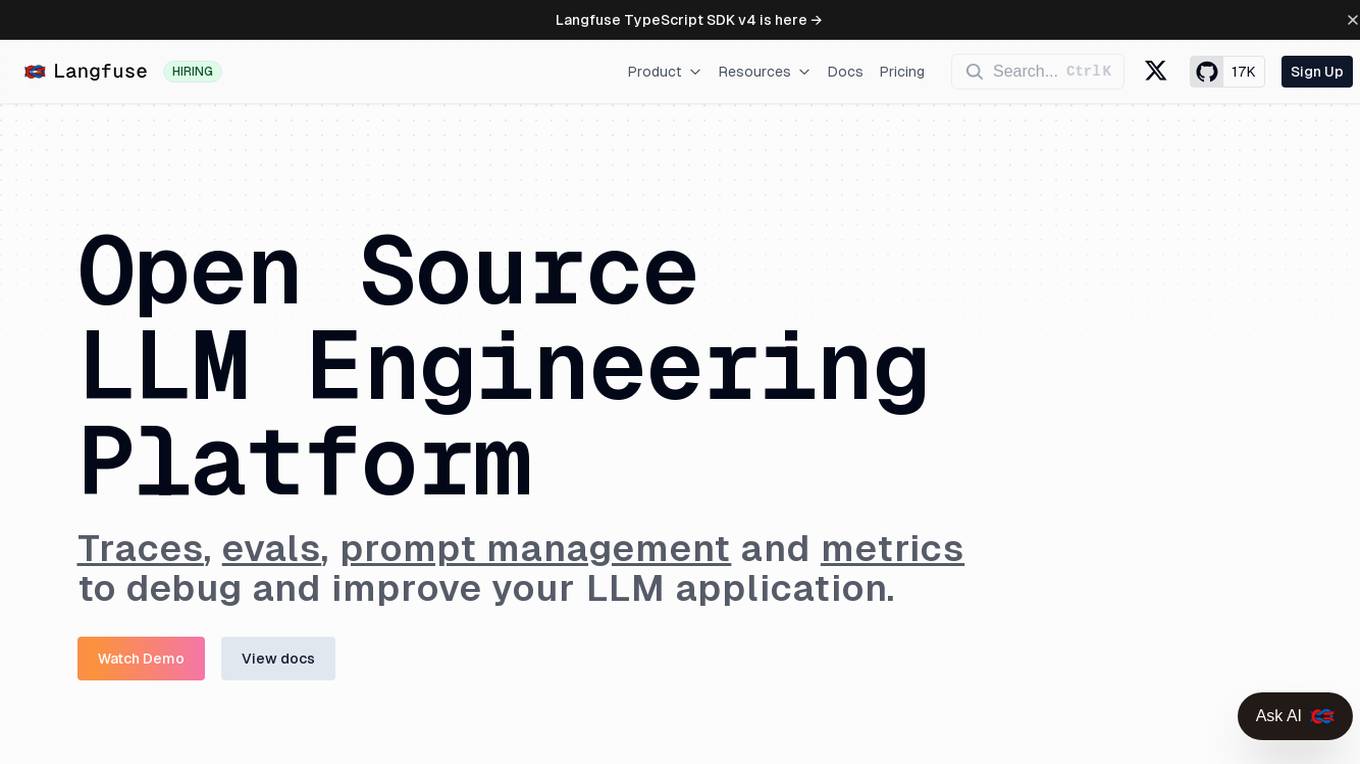
Langfuse
Langfuse is an AI tool that offers the Langfuse TypeScript SDK v4 for building and debugging LLM (Large Language Models) applications. It provides features such as tracing, prompt management, evaluation, and metrics to enhance the performance of LLM applications. Langfuse is backed by a team of experts and offers integrations with various platforms and SDKs. The tool aims to simplify the development process of complex LLM applications and improve overall efficiency.
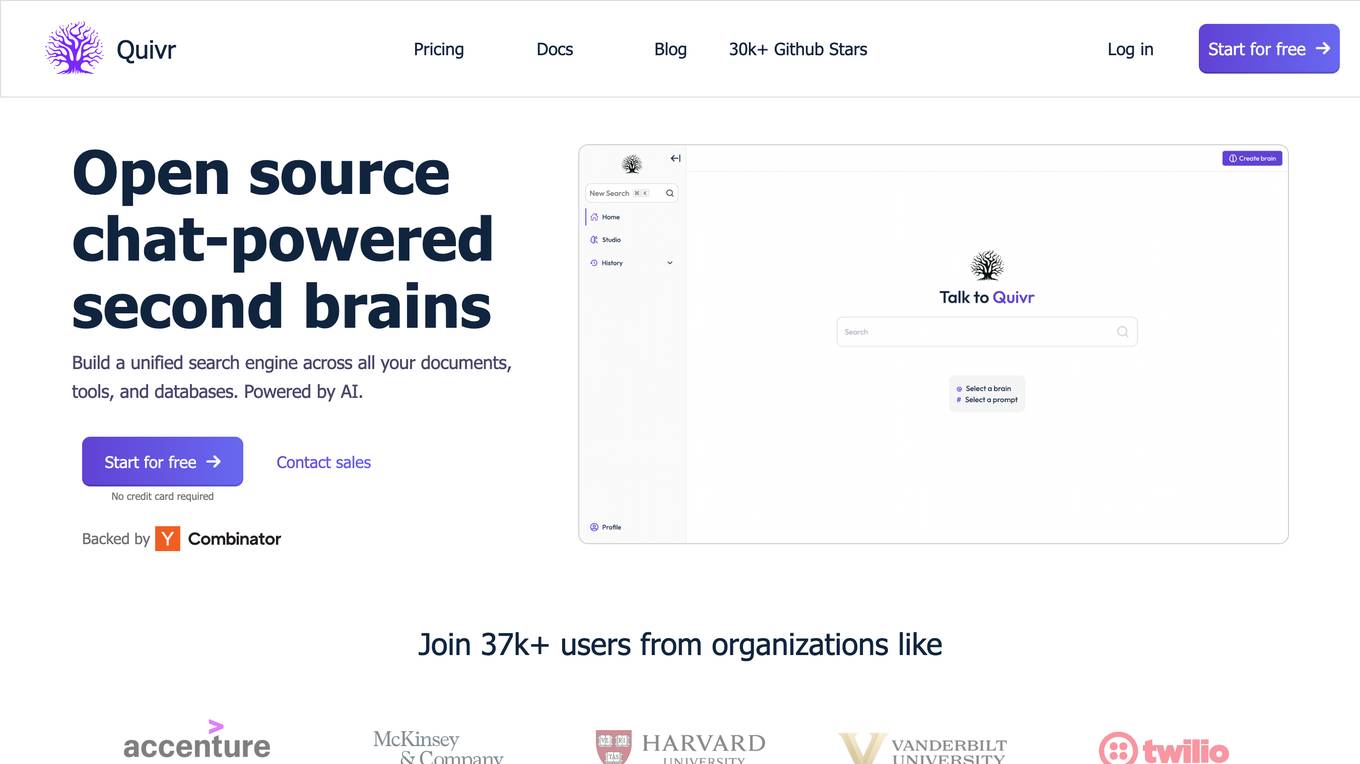
Quivr
Quivr is an open-source chat-powered second brain application that transforms private and enterprise knowledge into a personal AI assistant. It continuously learns and improves at every interaction, offering AI-powered workplace search synced with user data. Quivr allows users to connect with their favorite tools, databases, and applications, and configure their 'second brain' to train on their company's unique context for improved search relevance and knowledge discovery.
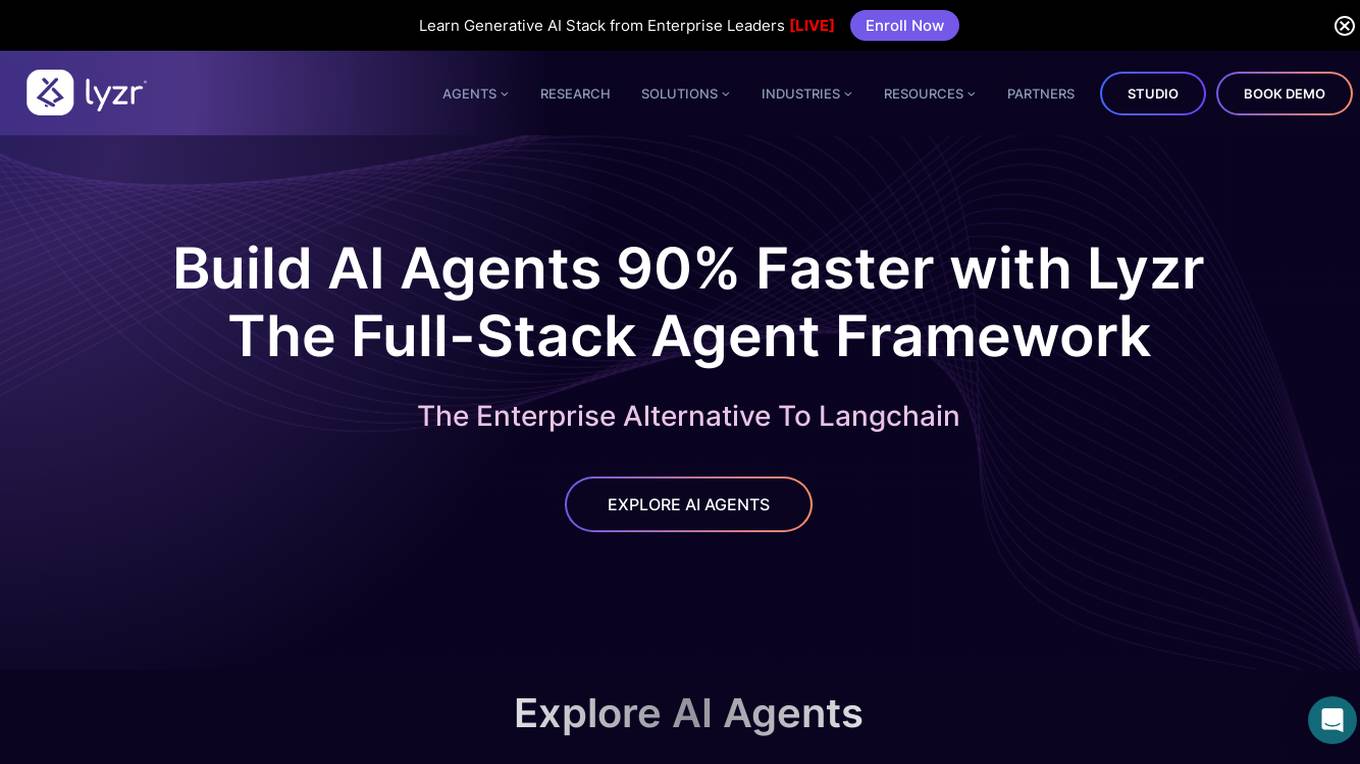
Lyzr AI
Lyzr AI is a full-stack agent framework designed to build GenAI applications faster. It offers a range of AI agents for various tasks such as chatbots, knowledge search, summarization, content generation, and data analysis. The platform provides features like memory management, human-in-loop interaction, toxicity control, reinforcement learning, and custom RAG prompts. Lyzr AI ensures data privacy by running data locally on cloud servers. Enterprises and developers can easily configure, deploy, and manage AI agents using Lyzr's platform.
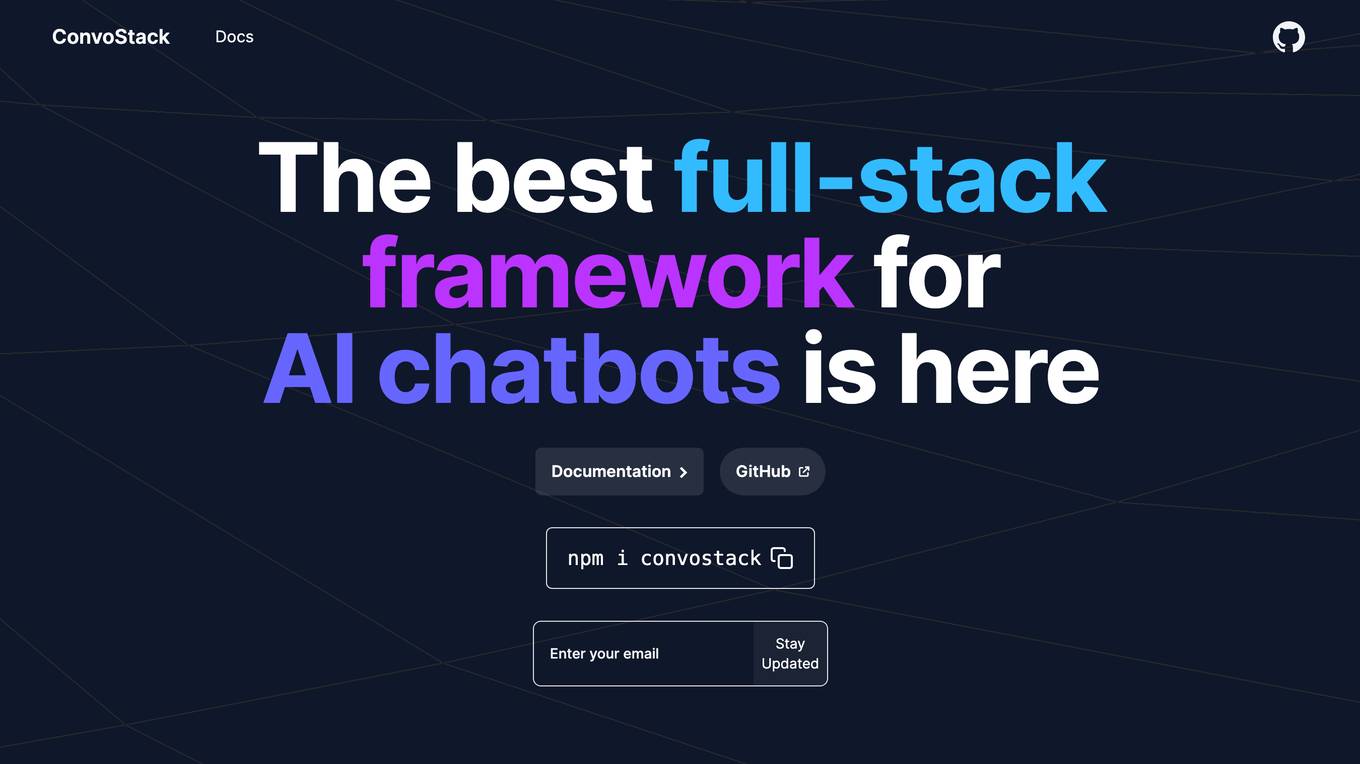
ConvoStack
ConvoStack is a free and open-source full-stack framework that makes it easy for developers to embed a customizable AI chatbot widget into a website with just a few lines of code. It supports popular frameworks such as Pinecone DB, Express, and React, and allows developers to integrate their own AI models using LangChain. ConvoStack is built on a tech stack that is used and loved by developers, and it is designed to be customizable for any use case.
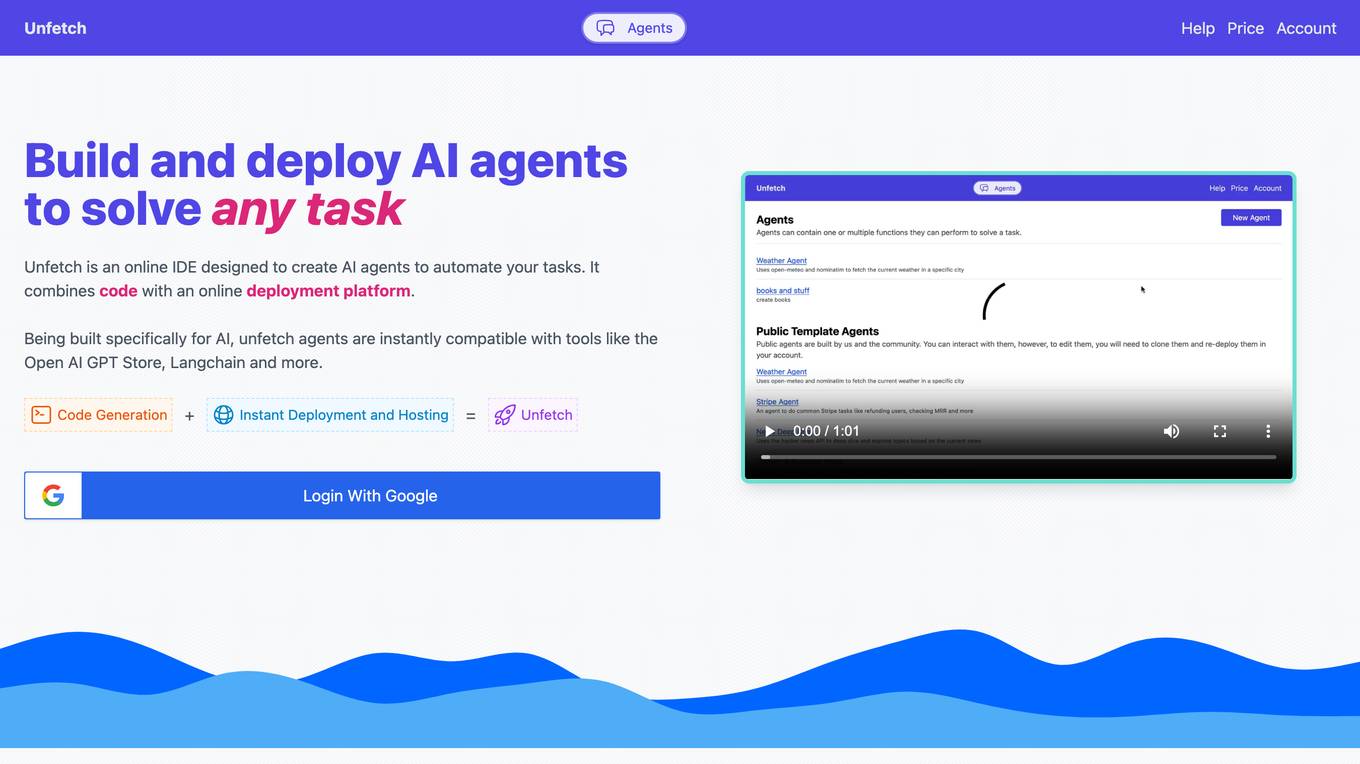
Unfetch
Unfetch is an online IDE that enables users to generate, deploy, and run AI agents to automate various tasks. It combines coding capabilities with an online deployment platform, making it easy to create AI agents. Unfetch agents are designed specifically for AI tasks and are compatible with tools like Open AI GPT Store and Langchain. Users can build and deploy AI agents to solve a wide range of tasks efficiently.

BenchLLM
BenchLLM is an AI tool designed for AI engineers to evaluate LLM-powered apps by running and evaluating models with a powerful CLI. It allows users to build test suites, choose evaluation strategies, and generate quality reports. The tool supports OpenAI, Langchain, and other APIs out of the box, offering automation, visualization of reports, and monitoring of model performance.
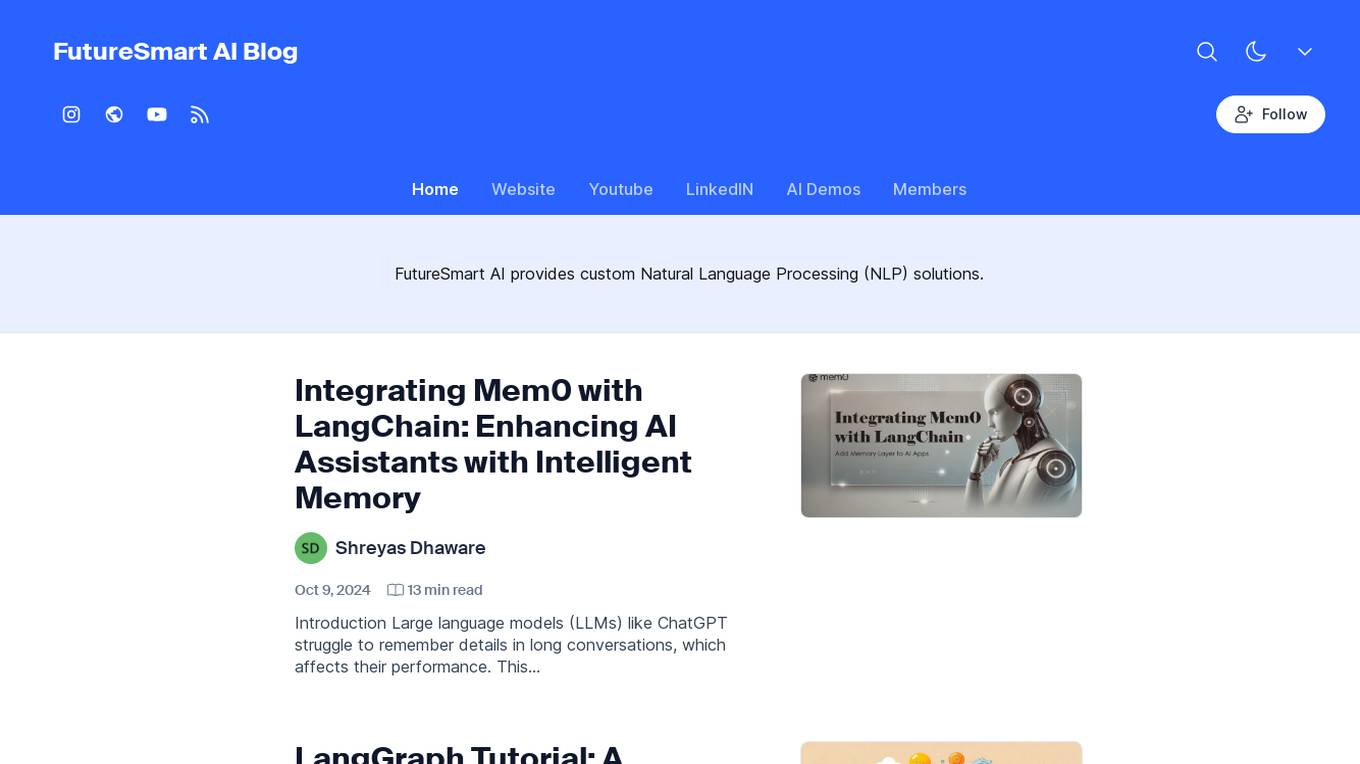
FutureSmart AI
FutureSmart AI is a platform that provides custom Natural Language Processing (NLP) solutions. The platform focuses on integrating Mem0 with LangChain to enhance AI Assistants with Intelligent Memory. It offers tutorials, guides, and practical tips for building applications with large language models (LLMs) to create sophisticated and interactive systems. FutureSmart AI also features internship journeys and practical guides for mastering RAG with LangChain, catering to developers and enthusiasts in the realm of NLP and AI.

Gista
Gista is an AI-powered conversion agent that helps businesses turn more website visitors into leads. It is equipped with knowledge about your products and services and can offer value props, build an email list, and more. Gista is easy to set up and use, and it integrates with your favorite platforms.
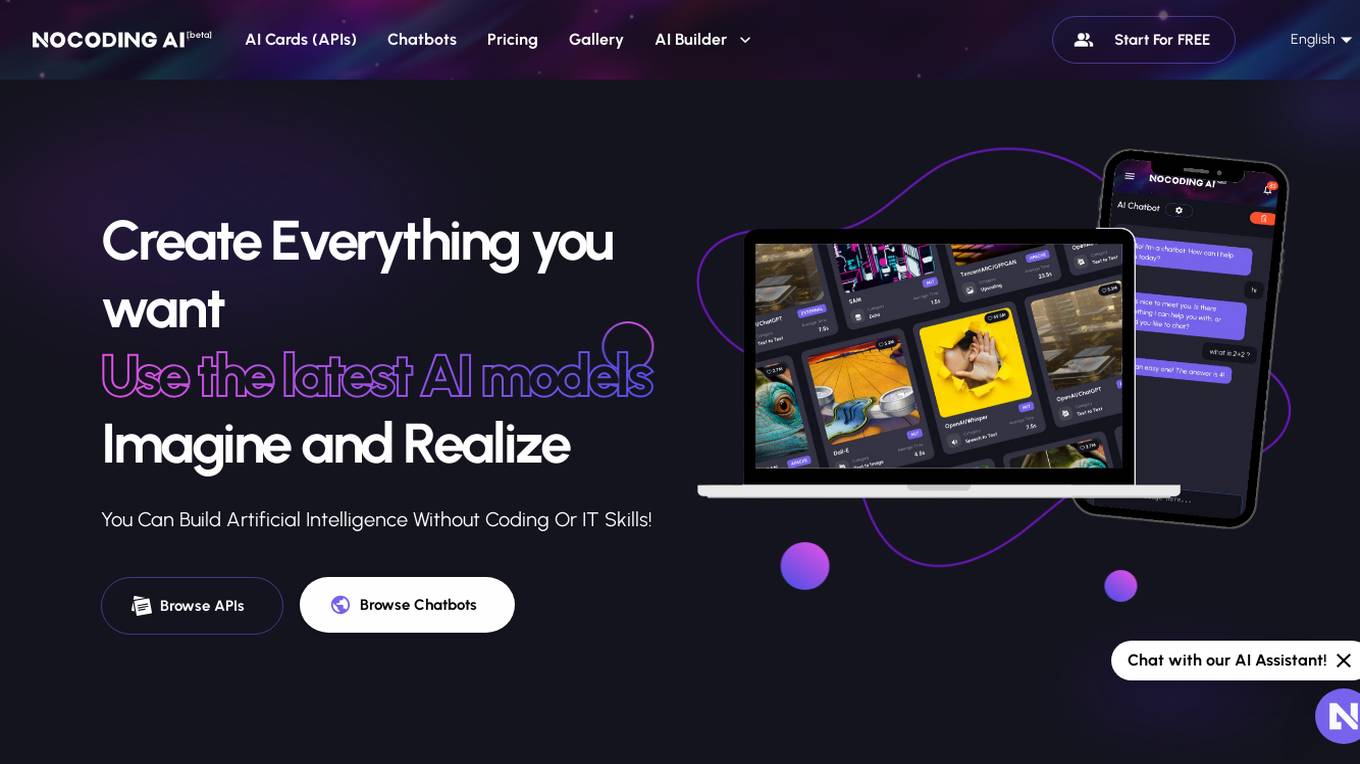
NOCODING AI
NOCODING AI is an innovative AI tool that allows users to create advanced applications without the need for coding skills. The platform offers a user-friendly interface with drag-and-drop functionality, making it easy for individuals and businesses to develop custom solutions. With NOCODING AI, users can build chatbots, automate workflows, analyze data, and more, all without writing a single line of code. The tool leverages machine learning algorithms to streamline the development process and empower users to bring their ideas to life quickly and efficiently.
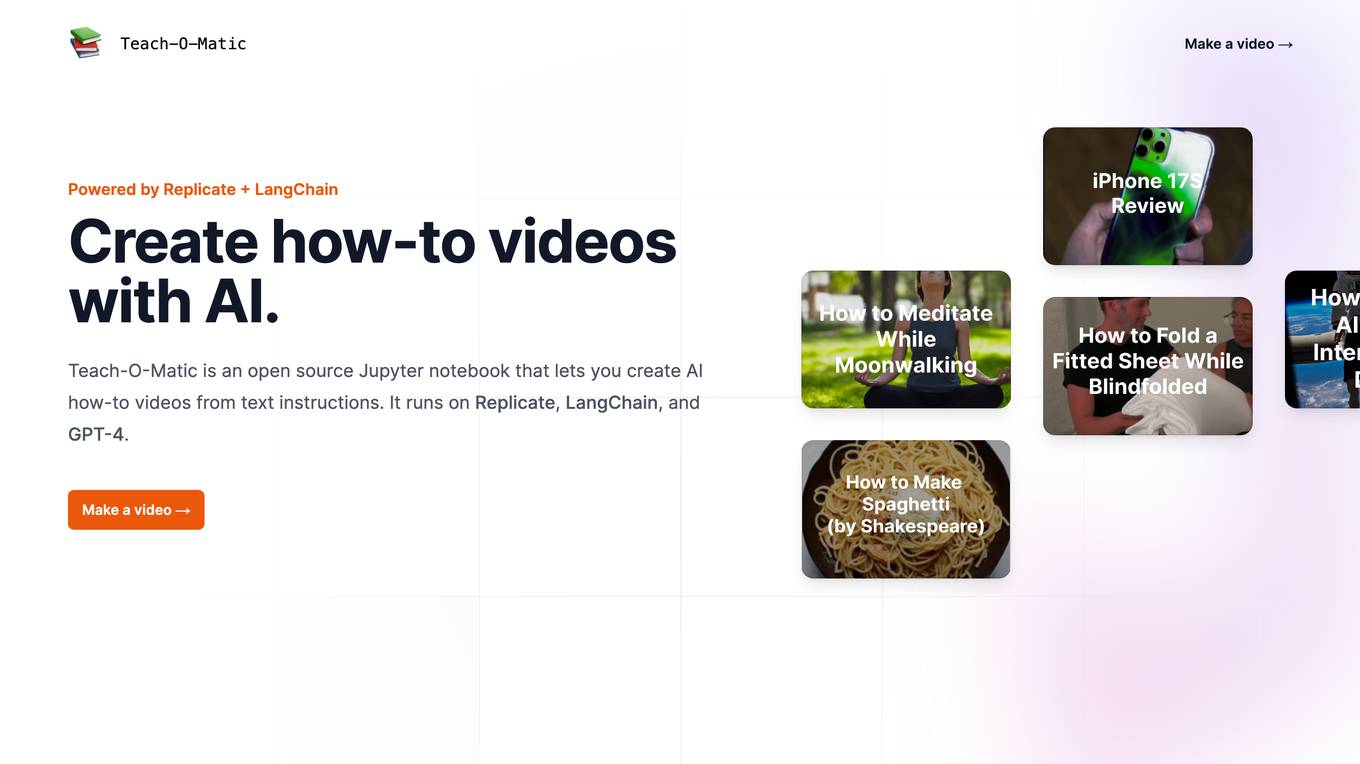
Teach-O-Matic
Teach-O-Matic is an AI-powered tool that allows users to create how-to videos from text instructions. It is an open source Jupyter notebook that leverages technologies like Replicate, LangChain, and GPT-4 to automate the video creation process. Users can easily generate videos on various topics without the need for a development environment.
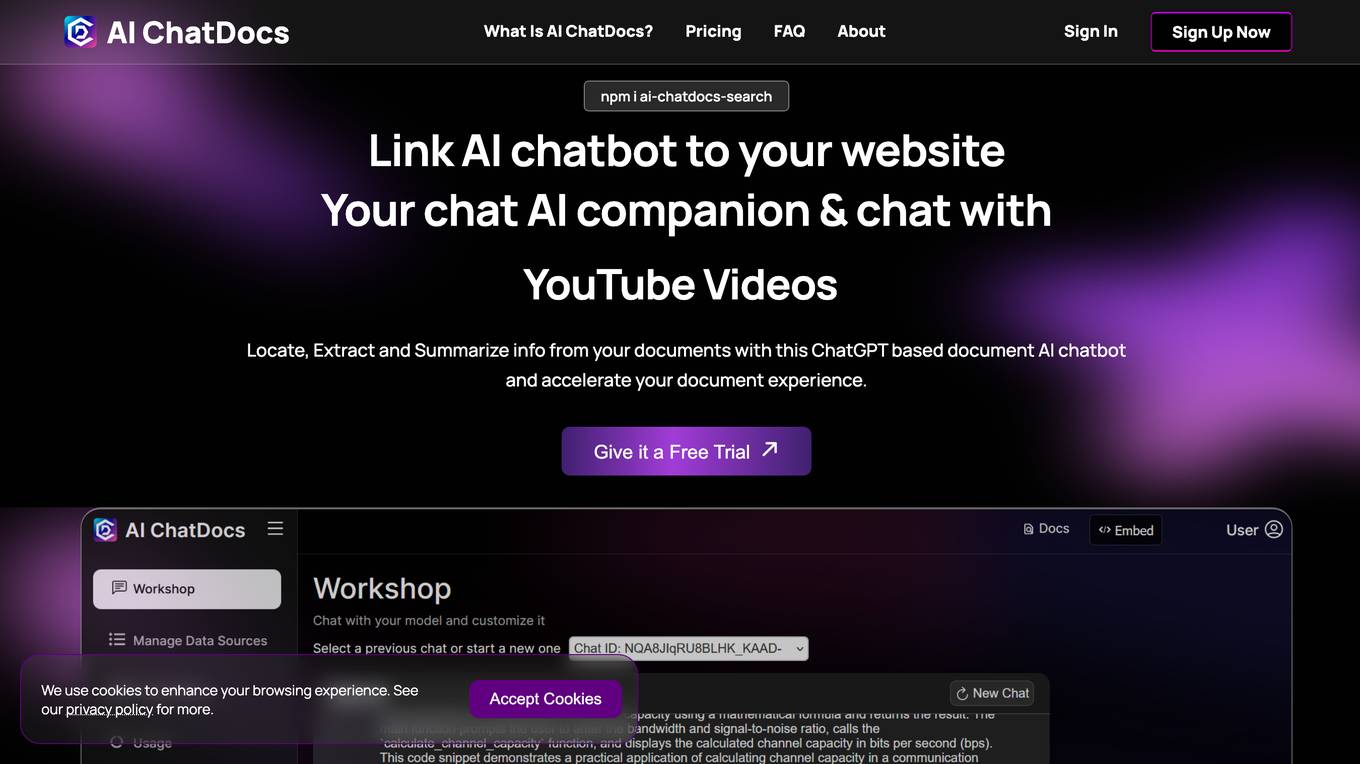
AI ChatDocs
AI ChatDocs is an AI-powered tool that allows you to chat with your documents using ChatGPT. It is based on langchain, a natural language processing platform. With AI ChatDocs, you can ask questions about your documents, get summaries, translate them into different languages, and more. It is a valuable tool for anyone who works with documents on a regular basis.
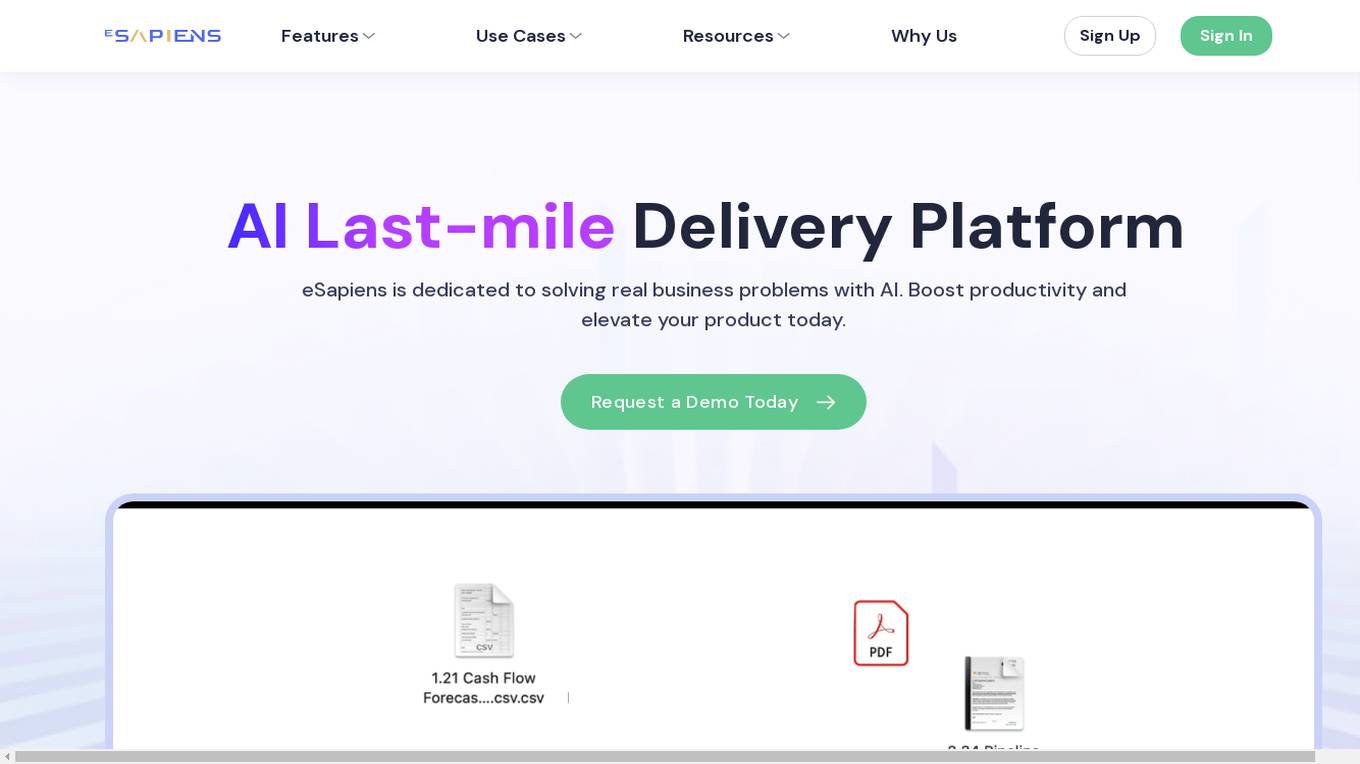
eSapiens
eSapiens is an AI last-mile delivery platform dedicated to solving real business problems with AI technology. It offers solutions to boost productivity and elevate products by leveraging AI-driven insights and automation. The platform provides features for customer support, sales management, accounting automation, marketing optimization, investment analysis, and product management. eSapiens enables users to streamline operations, make data-driven decisions, and enhance user experience through AI capabilities. With LangChain technology, eSapiens ensures accurate responses and deeper insights. The platform also offers no-code SQL queries for easy data access and automates message management to free up resources and enhance productivity.
